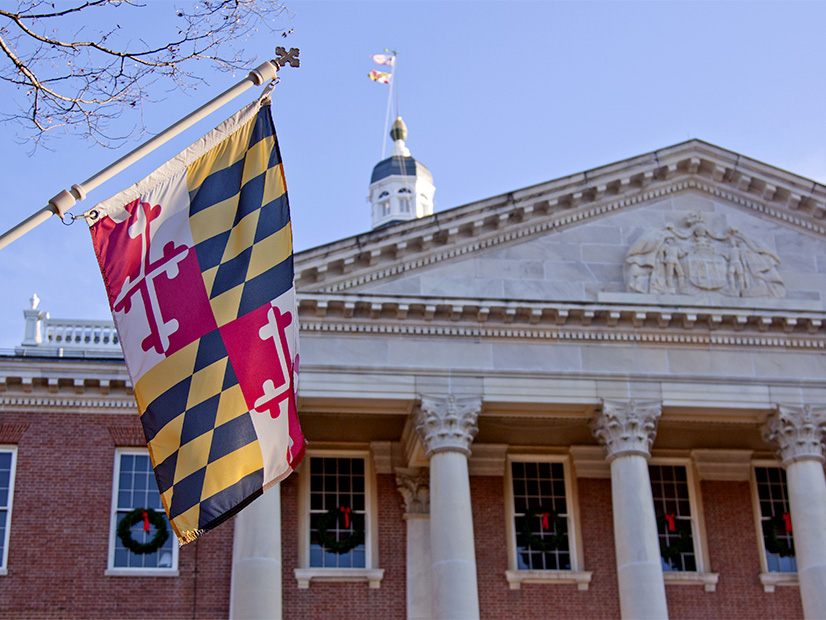“Crossover day” in the Maryland General Assembly is traditionally a legislative marathon in which bills must be passed in one house and cross over to the next to have any chance of final passage before they adjourn, this year on April 11.
Monday was the cross-over cut-off, and energy advocates across the state were tracking a number of bills down to the wire as committees met, compromises were made, and bills scored the three readings required for passage. Under Maryland law, bills must be “read” three times in each house to pass. In general, a first reading occurs when the bill is introduced; the second, when it is approved by a committee; and the third, when it gets a positive vote on the House or Senate floor.
The biggest and most significant piece of energy legislation, the Climate Solutions Now Act (SB 528), passed the Senate on March 14, and is scheduled for its first House hearing, before the Energy and Transportation Committee, on Thursday. If enacted, the bill would raise the state’s emission-reduction target to 60% below 2006 levels by 2030 and set a 2045 deadline for reaching net-zero emissions.
Other provisions in the bill target landfill methane emissions, new energy conservation standards for buildings and purchase requirements for zero-emission vehicles (ZEVs). (See Md. Senate Sets 2045 Net-Zero Target.)
While less comprehensive, other clean energy bills also moved ahead before or on Monday. Community solar, for example, had several key wins.
HB 1039 would provide an exemption from local or county property taxes for community solar projects used in “agrivoltaics,” which the bill defines as the simultaneous use of land for solar power generation and agriculture. The bill would also establish a 50% tax credit for community solar projects located on brownfields, landfills or “cleanfills,” which are lands with uncontaminated construction waste. Qualifying community solar projects approved on or before Dec. 31, 2025, would be eligible for the credit.
Meanwhile, SB 264 would extend property tax exemptions to other community solar projects of 2 MW or less that provide 50% of their power to low-income customers and are located on a rooftop, parking canopy or a brownfield. HB 440 would change the maximum size of community solar projects that can use virtual net-metering from 2 MW to 5 MW.
Electric Buses and Trucks
HB 696 would require the Maryland Public Service Commission to set up an electric school bus pilot program that would provide at least 25 electric buses and up to $50 million in rebates to participating school districts.
When the buses are not in use, a utility could draw power from their batteries through vehicle-to-grid technology without compensating the school district. School districts would be chosen for the pilot based on the “locational value” the bus batteries might have for the grid, and on the health and economic impacts for low-income and disadvantaged communities.
HB 1391, the Clean Cars Act, would establish a grant program to subsidize up to 20% of the cost of medium- and heavy-duty ZEVs.
HB 108, and its Senate counterpart, SB 524, are aimed at ensuring that the state’s energy efficiency program, EmPOWER Maryland, is providing measurable energy savings for customers: 0.4% per year beginning in 2023. It would also require the Department of Housing and Community Development to formulate a plan to provide energy-efficient home upgrades for low-income households across the state. Both bills were passed in their respective houses and crossed over.
HB 88 would require the PSC to submit a yearly report on distribution planning to the legislature, including on how it supports the state’s clean energy goals. It would also require the PSC and Maryland Energy Administration to encourage and support the state’s utilities in applying for grid planning funds that may be available from the Infrastructure Investment and Jobs Act.
With Democrats having solid majorities in both houses, the bills stand a good chance of passing by “Sine Die,” the last day of the session.
However, Republican Gov. Larry Hogan has already voiced strong opposition to the Climate Solutions Now Act. In a March 10 statement, Hogan called the bill a “reckless and controversial energy tax” that would impose “massive burdens on Maryland families and small businesses.”
Hogan pointed to a 2020 study from the World Resources Institute, in which Maryland had ranked first in the nation in decoupling its energy use from economic development. According to the study, the state cut its emissions 38% between 2005 and 2017, while at the same time increasing its GDP by 18%.




